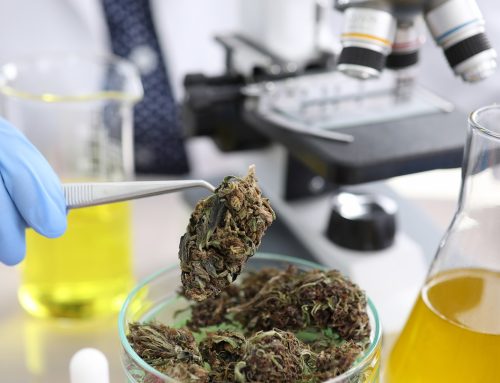Ensuring Safety in the Cannabis Industry: The Alarming Disparity in Pesticide Residues Between Legal and Illicit Products in Canada
LOS ANGELES– A recent study published in the Journal of Cannabis Research highlighted alarming levels of pesticides in illegal cannabis samples compared to legal ones in Canada. The researchers scrutinized 36 legal cannabis samples from licensed dispensaries and 24 illegal samples which were confiscated and tested in 2021.
In this analytical study, a staggering 92% of the illegal cannabis samples showed the presence of pesticides, with some samples containing as many as nine different pesticide ingredients. In comparison, only 6% of legal cannabis samples tested positive for pesticides. This study underscores the significant safety gap between legal and illicit cannabis products, reinforcing the Canadian government’s warnings regarding the potential hazards of consuming illegal cannabis products, which might contain contaminants like pesticides, bacteria, lead, and arsenic.
The research deployed a robust method to detect up to 327 pesticides in cannabis samples, a process involving multiple stages of laboratory treatment to prepare the samples for advanced analytical techniques such as gas chromatography and liquid chromatography coupled with mass spectroscopy. Notably, this study stands as a solitary extensive analysis comparing pesticide residues between licensed and illicit cannabis markets in a jurisdiction where cannabis is legal.
Beyond this study, the issues of pesticide usage in cannabis products have been a topic of concern for years. Nonprofit organization Beyond Pesticides has been urging the Congress to take necessary steps to protect the public from hazardous pesticides in cannabis since 2019, emphasizing that in the lack of federal regulations governing pesticides in cannabis production, using pesticides not registered by the Environmental Protection Agency (EPA) is illegal. They further recommend that states should adopt a precautionary approach to safeguard both consumers and the environment.
Additionally, the cannabis industry has witnessed various health crises and recalls due to unsafe components. Notably, in 2019, a severe health issue arose from the vaping of products containing Vitamin E Acetate, leading to numerous illnesses and deaths. Furthermore, products have been recalled due to mold contamination and the use of unapproved pesticides, causing adverse health effects in consumers.
These incidents highlight the pressing need for stringent policies and education regarding pesticide use and other hazardous substances in the production of cannabis products. Consumers are urged to ensure the safety of the products by obtaining a certificate of analysis from credible cannabis companies or businesses, verifying that the products have been appropriately tested and deemed safe for consumption.



































